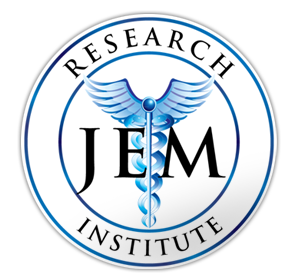GAP-Net site JEM Research Institute talks about what COVID-19 trials and vaccines tell us about Alzheimer’s disease trials, and the need for volunteers.
The White House hopes to vaccinate 100 million people in the first 100 days of the new administration. That would be a historic accomplishment from the virus to the vaccine in less than a year.
In the second part of our special report, the CBS 12 News I-Team is looking into whether Operation Warp Speed might have established a blueprint for combatting disease beyond COVID-19.
Multiple Sclerosis is one of the six thousand diseases with no cure.
There are days when Boca Raton mom Jennifer Guiterrez can barely get out of bed. Her MS flares up, she loses feeling in her body, and simply moving is sometimes impossible. Other symptoms include tremors and brain fog.
“I pray every night that they come up with a cure for MS because living with it is the most horrible thing you can do,” Guiterrez said. She was diagnosed 15 years ago. Since then, Jennifer has received monthly injections to keep the MS from progressing but they also suppress her immune system, putting her at greater risk for getting COVID-19.
“If I got COVID, I wouldn’t survive,” said Guiterrez.
These days, Jennifer rarely leaves the house except for an occasional walk around the neighborhood. There’s news of how the pandemic could be bringing scientists closer to a cure for MS.
BioNTech – the German company that developed a COVID vaccine with Pfizer – is reporting a breakthrough.
Based on the same M-RNA technology used to make the COVID vaccine, scientists have developed a formula that seems to reverse autoimmune diseases in mice.
“I’m hesitant. I don’t want to be a guinea pig.” Guiterrez said.
That nervousness is something doctors at JEM research institute in Atlantis have to deal with all the time but so-called “guinea pigs” are critical to every human drug trial.
“Without volunteerism, there is no progress,” said Dr. Mark Goldstein, a principal investigator at JEM where the focus is Alzheimer’s. “I am very encouraged that well within my lifetime we will have a cure for this terrible disease,” Goldstein said.
In order to get there, patients must be willing to try experimental treatments.
Tens of thousands of Americans stepped up for COVID vaccine trials and that is a spirit Dr. Goldstein says is carrying over to other illnesses.
“We are seeing, and I know other sites too, are seeing a definite rise in people who are willing to participate. Understanding that not participating is not the answer. You can be a part of the solution or you can be part of the problem.” Goldstein said.
Jane Burnham is committed to being part of the solution. Four years into her Alzheimer’s diagnosis, Jane is volunteering in a clinical trial exploring whether monoclonal antibodies will attack the plaque in her brain. She and her husband Jim are convinced the treatment is slowing the progression of Jane’s memory loss and buying them more time together.
“We met when we were 16 and in high school. This woman has loved me for 50 years.” James Burnham said.
“I’m just hoping and praying that things happen so the disease can go away and I hope I’m part of that,” Jane Burnham said.
During the Obama administration, The 21st Century Cures Act was signed into law. It invested $6.3 billion in finding cures for patients like Jane and Jennifer.
The world watched the U.S. during the pandemic and saw what the huge investment was able to accomplish, so the I-Team wanted to know – might we be able to do it again?
Florida Congressman Gus Bilirakis of New Port Richey says yes.
“We are going to focus on vouchers.”
Bilirakis helped author the 21st Century Cures Act, with special attention to sections dealing with Parkinson’s Disease. He says giving drug companies tax breaks is critical to finding a cure. “You have to incentivize these companies, otherwise they’re not going to go through the process because it’s too expensive, too time-consuming.”
Parkinson’s is the fastest-growing neurological disorder in the world. Right now Parkinson’s research only gets $200 million a year in funding. In 2020, upwards of $3.5 billion was spent on COVID research.
As COVID research gets more money, it also got less red tape from the FDA.
The congressman says that’s as important as money to the success of these programs.
“There are ways to do this when we don’t have to wait ten years for a cure or a treatment. Operation Warp Speed has proven there was too much bureaucracy with regard to the FDA. It’s almost a miracle that we got this vaccine in a few months. We need to commit to something like this and we have the framework. We have the model,” Bilirakis said.
In the first full year following the 21st Century Cures Act, a record 59 new drugs were approved.
Originally posted by CBS 12 News on February 5, 2021.
